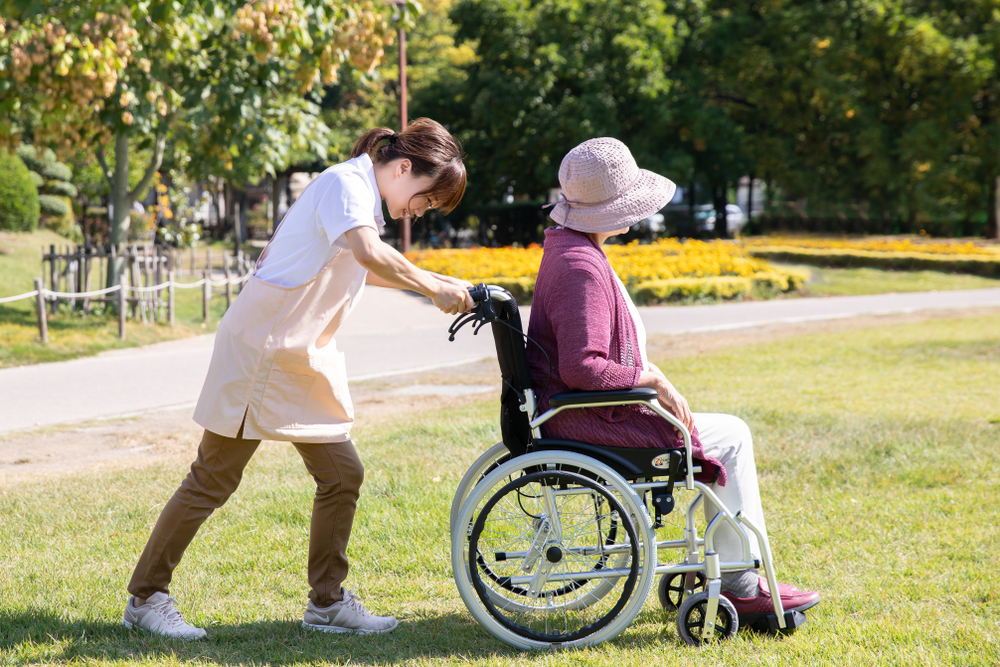What are the Signs of a Caregiver Burnout?
Caregiving is a rewarding yet demanding responsibility that can take a toll on a person’s physical, emotional, and mental health. At Devoted Helpers, based in Sugar Land, Texas, we recognize the challenges caregivers face and the importance of recognizing burnout before it becomes overwhelming.
Here are the key signs of caregiver burnout…
Emotional and Mental Exhaustion
- Feeling constantly drained and overwhelmed.
- Increased anxiety, depression, or irritability.
- A sense of helplessness or hopelessness.
Physical Fatigue and Health Issues
- Chronic fatigue or persistent tiredness.
- Frequent headaches, body aches, or digestive problems.
- Weak immune system leading to more frequent illnesses.
Withdrawal from Social Activities
- Avoiding family, friends, and social gatherings.
- Losing interest in hobbies or activities once enjoyed.
- Feeling isolated and disconnected from others.
Increased Irritability and Mood Swings
- Feeling easily frustrated or impatient with the care recipient.
- Experiencing frequent mood swings or emotional outbursts.
- Difficulty controlling anger or resentment.
Neglecting Personal Needs
- Ignoring personal hygiene or self-care.
- Skipping meals or eating unhealthy foods.
- Lack of exercise or proper rest.
Difficulty Concentrating and Making Decisions
- Forgetfulness and trouble remembering important tasks.
- Struggling with problem-solving or decision-making.
- Decreased productivity and efficiency.
Increased Use of Unhealthy Coping Mechanisms
- Increased consumption of alcohol, smoking, or overeating.
- Using medications or substances to cope with stress.
- Engaging in compulsive behaviors like excessive shopping or gambling.
Resentment Toward the Care Recipient
- Feeling burdened or trapped in the caregiving role.
- Viewing caregiving as a chore rather than an act of love.
- Growing feelings of frustration or guilt.
Lack of Satisfaction in Caregiving
- Feeling unappreciated despite efforts.
- Doubting personal effectiveness as a caregiver.
- Losing passion or motivation for caregiving responsibilities.
Thoughts of Leaving or Escaping
- Wanting to quit caregiving responsibilities.
- Having thoughts of running away or escaping the situation.
- Considering drastic changes to avoid caregiving duties.
How to Prevent and Manage Caregiver Burnout
- Seek Support – Join a caregiver support group for encouragement and advice.
- Take Breaks – Utilize respite care to take time for yourself.
- Prioritize Self-Care – Engage in activities that promote relaxation and well-being.
- Maintain Healthy Boundaries – Set limits on responsibilities and ask for help when needed.
- Stay Organized – Create schedules to balance caregiving and personal time.
- Consider Professional Assistance – Hire home health aides or enlist the help of agencies like Devoted Helpers.
How Devoted Helpers Can Assist
- Offering respite care to provide caregivers with much-needed relief.
- Providing professional in-home support to ease caregiving duties.
- Connecting caregivers with counseling and stress management resources.
- Helping families create sustainable care plans for long-term support.
Caregiver burnout is a serious issue that affects both the caregiver and the care recipient. Recognizing the signs early and taking proactive steps can help prevent severe stress and exhaustion. At Devoted Helpers, we are committed to supporting caregivers and ensuring they receive the help they need. Contact us today to learn more about our caregiver support services.


